Karens and Racial Injustice: Unpacking Entitlement and Harm
Category: Social Issues
Understanding Karens and Their Role in Racial Injustice
If you've found yourself searching for insights into the troubling phenomenon of 'Karens' and their disproportionate impact on racial injustice, you're not alone. As a socially conscious reader concerned about fairness and social equity, you likely recognize the pattern of entitled behavior spiraling into real-world consequences for marginalized communities. Maybe you've seen viral videos, news stories, or social media debates, but you want a deeper, well-structured analysis that connects these incidents to broader systemic issues—without oversimplifying or sensationalizing. This post offers precisely that. We'll dissect the historic and cultural roots of 'Karen' behavior, explore its intersection with racial biases, and illuminate how these entitled actions reinforce injustice. Unlike other posts that merely catalog incidents, this article critically examines motivations, patterns, and social repercussions while acknowledging the nuanced complexities involved. Whether you're an activist, educator, or just someone striving to understand social dynamics better, this comprehensive guide will equip you with thoughtful perspectives necessary to recognize, challenge, and counteract this disruptive entitlement culture facilitating racial harm. Stay with us to uncover the interconnectedness of personal behavior and systemic racism and how to advocate for justice beyond the viral moment.
- Understanding Karens and Their Role in Racial Injustice
- Defining 'Karen': Origins, Usage, and Cultural Meaning
- Historical Context: Entitlement and Racial Bias in Society
- Common Behaviors of Karens That Exacerbate Racial Injustice
- Impact of Karen Incidents on Communities of Color
- Social Media, Virality, and the Amplification of Karen Episodes
- Critiques and Controversies Around the 'Karen' Label
- Legal and Policy Implications: How Karen Behavior Influences Justice Systems
- Strategies for Challenging Entitlement and Supporting Racial Justice
- Broader Cultural Reflections: Entitlement, Privilege, and Accountability
- Moving Forward: Fostering Empathy and Equity in Everyday Interactions
Defining 'Karen': Origins, Usage, and Cultural Meaning
The term "Karen" has evolved from an innocuous given name into a powerful cultural symbol representing a particular kind of entitlement and disruptive behavior—especially in public settings. Its emergence can be traced back to early 2010s internet memes, where "Karen" was used to caricature a middle-aged white woman perceived as demanding beyond reason, often insisting on speaking to managers over trivial complaints. Over time, this label expanded beyond customer service scenarios to embody a broader archetype: someone wielding privilege and entitlement aggressively, frequently at the expense of others, particularly people of color.
Characteristics and Evolution of 'Karen' in Popular Culture
- Entitlement and Privilege: At its core, the "Karen" persona involves asserting one's needs without regard for social norms or others’ rights, often coupled with racial biases or microaggressions.
- Disruptiveness: Many "Karen" incidents depict a refusal to accept boundaries—calling authorities on innocent individuals, escalating minor conflicts, or weaponizing politeness to shame others.
- Symbol of Systemic Inequality: While initially a meme, "Karen" now serves as a shorthand critique of underlying social and racial power dynamics, illustrating how individual actions reinforce structural injustice.
- Cultural Critique and Backlash: While the term has gained mainstream popularity, it has also faced pushback for perceived overuse or misuse, indicative of ongoing debates about language, race, and accountability.
Understanding this evolution is essential because the "Karen" label encapsulates much more than annoying customer behavior; it shines a spotlight on how entitlement can perpetuate racial injustice in everyday encounters, magnifying social inequities that demand collective attention and response.
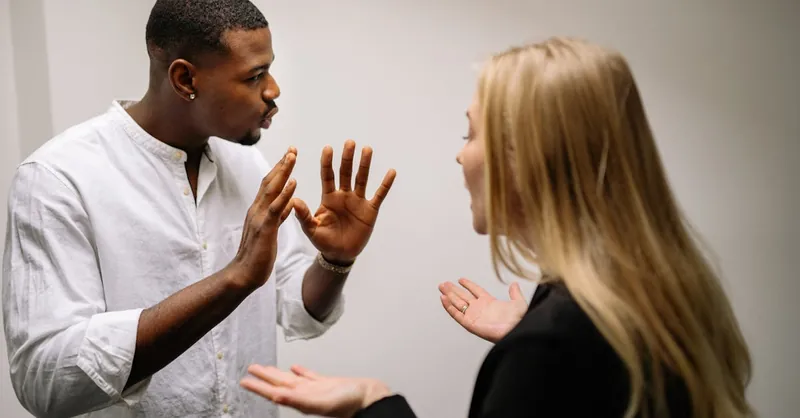
Image courtesy of Yan Krukau
Historical Context: Entitlement and Racial Bias in Society
To fully grasp the emergence and impact of "Karen" behavior, it’s essential to examine the historical patterns of entitlement intertwined with racial bias that set the stage for these actions. The "Karen" archetype is not an isolated phenomenon but rather a contemporary manifestation of deep-rooted social dynamics shaped by centuries of systemic privilege and discrimination. Historically, certain demographics—particularly white, middle-class women—have been socially positioned to exercise disproportionate authority in public and private spheres, often underpinned by institutionalized racism.
Roots of Entitlement in Racialized Power Structures
- Legacy of Segregation and Social Hierarchies: From Jim Crow laws to redlining policies, social systems have long enforced racial stratification, creating environments where white individuals were socially and legally empowered to police the behaviors and whereabouts of people of color. This created a normalized entitlement to control and question marginalized groups.
- The Role of White Womanhood in Social Control: Historically, white women have been both protected and weaponized within racial dynamics—a phenomenon evident in the trope of the “white woman in distress” used to justify racially motivated violence or law enforcement intervention against Black men and other minorities. This cultural backdrop informs many "Karen" incidents where calls to authorities escalate conflicts rather than resolve them.
- Institutional Reinforcement of Bias: Entitlement behaviors are amplified when social institutions—like law enforcement, business management, or public services—systematically side with individuals exhibiting "Karen" tendencies, thereby perpetuating cycles of racial injustice that extend far beyond isolated personal conflicts.
Linking Historical Privilege to Modern ‘Karen’ Behavior
- The sense of unquestioned authority many Karens display today echoes historical privileges that granted some individuals the power to intervene arbitrarily in others’ lives based on race, class, or gender.
- Viral videos capturing these moments reflect a broader societal problem: systemic unequal access to justice, safety, and respect, which "Karen" actions tragically perpetuate and normalize.
- Understanding this continuum is vital because labeling behaviors as simply rude or entitled ignores the racist foundations that enable and embolden these acts, masking the broader urgency of addressing systemic inequities.
By situating the "Karen" phenomenon within this historical context, we see that these behaviors are more than just individual lapses in manners—they are symptomatic of enduring racial privilege and systemic injustice that demand informed recognition and committed challenge.
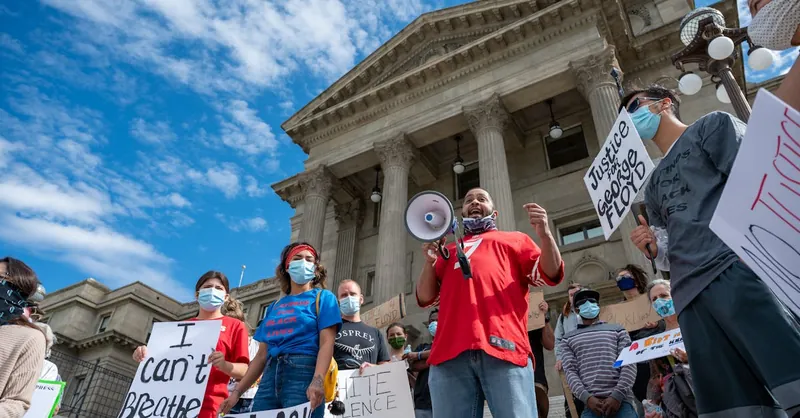
Image courtesy of Brett Sayles
Common Behaviors of Karens That Exacerbate Racial Injustice
One of the most pervasive and damaging behaviors associated with the "Karen" archetype is the disproportionate and often unfounded calling of law enforcement on people of color. This action is far from a trivial social faux pas; it is a clear manifestation of racial bias weaponized through entitlement, which directly feeds into broader patterns of racial profiling, distrust, and systemic oppression. When a Karen calls the police on an innocent person of color for minor, lawful activities—such as barbecuing in a park, waiting for a friend, or entering their own home—she not only disrupts that individual's life but also signals to society that people of color are inherently suspicious and threatening.
How These Behaviors Propagate Racial Profiling and Distrust
- Amplification of Racial Stereotypes: The repeated practice of unjustified policing calls normalizes the false narrative that Black, Indigenous, and other People of Color (BIPOC) are criminals or threats by default. This perpetuates harmful stereotypes that unjustly influence both public perception and institutional decisions.
- Erosion of Community Trust: Such incidents deepen the divide between marginalized communities and law enforcement, fostering an environment where individuals feel surveilled and unsafe in everyday spaces. This distrust impedes community cohesion and cooperation, which are essential for social justice and public safety.
- Triggering Traumatic Consequences: Beyond social effects, these calls can lead to potentially dangerous confrontations, unnecessary legal trouble, and even violence. Numerous documented cases demonstrate how Karens’ entitlement-fueled actions put lives at risk, reinforcing systemic racial violence under the guise of "just doing their civic duty."
- Misuse of Institutional Power: Karens exploit institutional mechanisms—such as police response—to enforce their personal biases, turning public safety apparatuses into tools of racial control rather than protection. This misappropriation strengthens the cycle of injustice and marginalization.
Other Enabling Behaviors That Worsen Racial Inequity
- Demanding Excessive Control: Insisting on rule enforcement selectively, particularly targeting people of color while ignoring similar or worse conduct by others, underscores the underlying racial double standards.
- Invalidating Voices of People of Color: Often, Karens dismiss the perspectives and experiences of marginalized individuals, doubling down on their entitlement by silencing or gaslighting those who challenge their actions.
- Objectifying and Tokenizing: Some Karens engage in performative allyship or racially insensitive “helping” behaviors that center their own image rather than genuinely supporting racial justice, further disrupting authentic dialogue and progress.
Recognizing these behaviors is critical because they are not isolated incidents but part of a larger cultural problem where individual entitlement becomes an engine for structural racial injustice. This understanding helps dismantle the myth that such acts are harmless or simply rude, instead framing them as urgent social issues that demand accountability and reform.
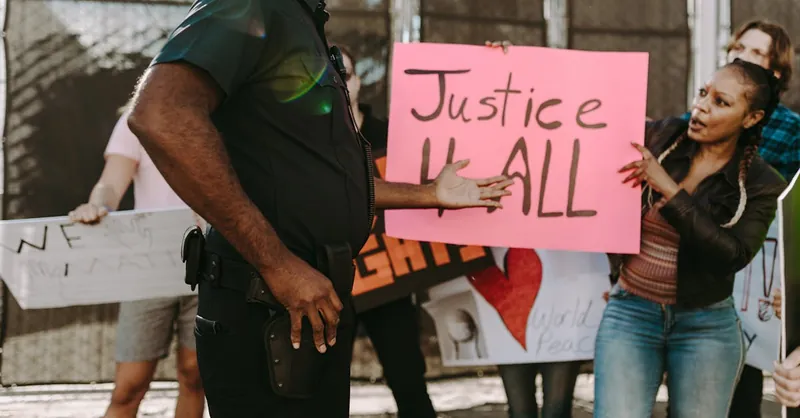
Image courtesy of RDNE Stock project
Impact of Karen Incidents on Communities of Color
The repeated confrontations initiated by Karens inflict profound social and emotional harm on communities of color, extending far beyond the immediate conflicts captured in viral videos. These incidents act as constant reminders of racial profiling, discrimination, and systemic inequities, generating chronic stress and fear among marginalized groups who are disproportionately targeted. The psychological toll includes heightened anxiety, feelings of vulnerability in everyday spaces, and a pervasive sense of being unjustly surveilled and policed—a form of social trauma that shapes community interactions and personal well-being.
Social and Emotional Toll
- Chronic Stress and Fear: Encounters with entitled individuals who weaponize their privilege can trigger trauma responses, including hypervigilance and a loss of sense of safety, especially when law enforcement is called unnecessarily. This ongoing stress contributes to mental health disparities already prevalent in marginalized populations.
- Reinforcement of Negative Stereotypes: Each incident amplifies existing racial biases by casting people of color as suspicious or threatening, even when they are minding their own business. This not only affects how society views these communities but also influences how individuals assimilate or resist internalized stereotypes.
- Erosion of Community Empowerment: Being subject to unjust policing and public shaming undermines the agency of people of color, discouraging active participation in social, economic, and civic life due to fear of discrimination or retaliation.
- Interpersonal and Intergenerational Impact: Witnessing or experiencing these attacks creates a ripple effect, affecting familial and social relationships by introducing mistrust and caution, often passing these fears down through generations.
Broader Societal Consequences
- Normalization of Racial Inequity: When entitlement-driven confrontations become routine, society risks accepting these behaviors as normal, further entrenching systemic racism and inequality.
- Polarization and Divisiveness: These incidents fuel social divisions by pitting groups against each other, distracting from collective efforts to address underlying causes of injustice.
- Undermining Social Justice Efforts: The emotional exhaustion caused by repeated Karen encounters can deter marginalized communities from engaging in activism or expressing their narratives, weakening movements seeking equity and justice.
Understanding the far-reaching impact of Karen incidents on communities of color sheds light on why addressing this entitlement culture is not merely about calling out bad behavior but about challenging deeply ingrained systems of racial oppression and striving for meaningful societal change.
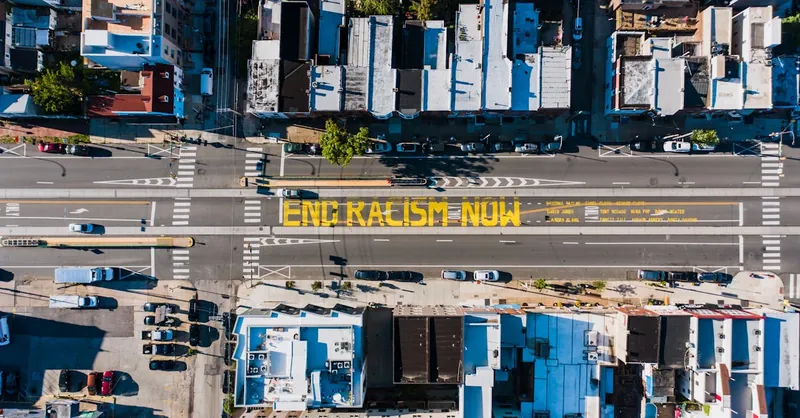
Image courtesy of Kelly
Social Media, Virality, and the Amplification of Karen Episodes
In today’s digital age, social media platforms and viral videos have become powerful forces in exposing Karen behavior, bringing widespread attention to incidents that might otherwise remain hidden. Clips capturing entitled confrontations—often involving racial bias and unjust calls to law enforcement—spread rapidly across networks like Twitter, Instagram, TikTok, and Facebook. This virality has a dual impact: it raises public awareness about patterns of racial injustice linked to entitlement culture while also fueling intense cultural conversations about accountability, privilege, and systemic racism.
The Role of Viral Videos in Exposing and Shaping Perceptions
- Visibility and Public Accountability: Viral videos serve as undeniable evidence, illustrating how Karens weaponize their social and racial privilege to disrupt lives of marginalized individuals. These shared moments create opportunities for widespread condemnation of such actions, encouraging public discourse on racial inequality and prompting some institutions to reconsider policies around bias and policing.
- Instant Cultural Conversation: With rapid sharing, these episodes spark heated debates about entitlement, race, and social justice, engaging diverse audiences from activists to casual observers. Hashtags and comment threads become spaces for education, critique, and mobilization, forging collective calls for change grounded in real-world examples.
- Distortion and Oversimplification Risks: Despite their benefits, viral clips may sometimes lack context or nuance, reducing complex social dynamics to snapshot moments. This can inadvertently reinforce stereotypes, spread misinformation, or lead to performative outrage that neglects deeper systemic factors. The focus on sensationalism may overshadow the broader, ongoing structural injustices that enable these behaviors.
- Empowerment and Emotional Release: For many marginalized viewers, witnessing Karens publicly called out provides a sense of validation and solidarity. It highlights that these struggles are shared and systemic, strengthening community resilience and inspiring collective activism.
How Social Media Shapes the Narrative Around Karen Behavior
- Drives real-time awareness of entitlement and racial bias incidents in everyday life, often influencing mainstream news coverage.
- Facilitates community-led accountability campaigns, putting pressure on offenders, their employers, or local authorities to take responsibility.
- Fuels the evolution of the "Karen" term itself, as online discourse refines its meaning to cover broader issues of racism and social injustice.
- Risks fostering polarization and tribalism, whereby online echo chambers harden contrasting views, complicating constructive dialogue on racial dynamics.
Ultimately, social media’s role in amplifying Karen episodes does not simply expose isolated acts of entitlement but reveals their embeddedness within larger societal patterns of racial injustice. By harnessing this visibility thoughtfully, we can advance critical conversations aimed at dismantling entitlement cultures fueled by racial bias and promoting equity in both online and offline spaces.
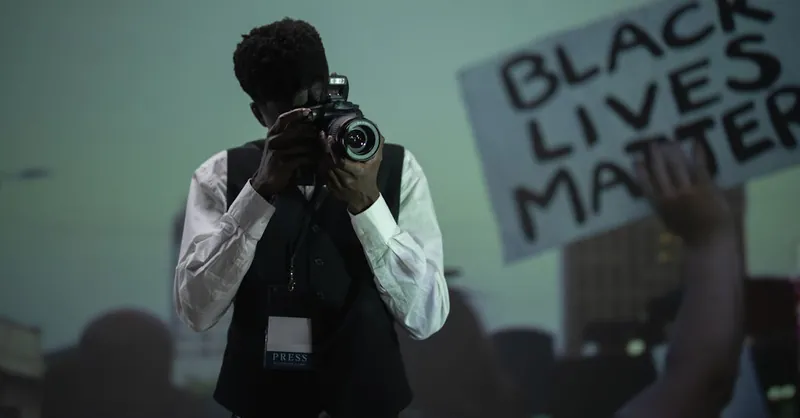
Image courtesy of cottonbro studio
Critiques and Controversies Around the 'Karen' Label
While the term "Karen" has become a popular shorthand to call out entitlement and racial bias, it is not without its critics and controversies. Debates about the fairness and implications of the label reveal important complexities that merit careful consideration, especially when discussing sensitive issues of race and social dynamics.
Concerns About Stereotyping and Oversimplification
- Risk of Racial and Gender Stereotyping: Some argue that the "Karen" label disproportionately targets white women, potentially reinforcing gendered and racial stereotypes. Critics caution that it may dangerously conflate everyday frustration or assertiveness with racism or entitlement, thereby unfairly stigmatizing individuals based on appearance or demographic markers rather than actual behavior.
- Oversimplification of Complex Social Dynamics: The "Karen" meme can reduce multi-layered incidents involving race, class, and power into a simplistic caricature. This risks obscuring the structural roots of entitlement and injustice by focusing too heavily on individual personalities rather than addressing systemic factors. Such simplification might limit meaningful dialogue about institutional reforms needed to combat racial inequity.
- Potential for Misuse and Weaponization: Like many cultural labels, "Karen" can be weaponized to silence or dismiss valid concerns—especially when deployed without context or nuance. Overuse or misapplication may alienate potential allies or undermine the legitimacy of genuine grievances related to entitlement and discrimination.
Why the Debate Matters for Social Justice Conversations
- The fair application of the 'Karen' label is crucial to maintaining its effectiveness as a tool for exposing racial injustice without perpetuating unfair bias or exclusion.
- Recognizing the nuanced social realities behind Karen incidents helps avoid reductive judgments, fostering more productive conversations that address entitlement culture and systemic racism.
- Balancing accountability with empathy ensures that critiques do not devolve into name-calling but rather promote informed awareness and social change.
Ultimately, while the "Karen" label powerfully highlights patterns of entitlement linked to racial injustice, engaging thoughtfully with these critiques enhances our ability to tackle the root causes of inequity. It calls for a careful, intersectional approach that holds individuals accountable but also addresses the complex social frameworks enabling these behaviors.

Image courtesy of Eyüpcan Timur
Legal and Policy Implications: How Karen Behavior Influences Justice Systems
The biased calls and complaints frequently made by Karens have profound legal and policy implications, as they often unjustly involve law enforcement and exacerbate systemic inequalities within the justice system. These entitlement-driven actions leverage institutional powers—particularly policing—in ways that disproportionately target communities of color, reinforcing cycles of discrimination and deepening mistrust toward authorities. Understanding this dynamic is critical to addressing how personal prejudice can translate into structural harm.
Unjust Involvement of Law Enforcement and Systemic Consequences
- Weaponization of Police Resources: When Karens make racially motivated or unfounded complaints, they effectively weaponize law enforcement as an extension of personal bias. This not only wastes valuable public resources but also puts innocent individuals—especially Black and Brown people—at risk of unnecessary stops, harassment, or even violence. Such misuse contributes to the over-policing of marginalized communities.
- Strengthening Racial Disparities in Policing and Prosecution: These biased calls feed into larger patterns of racial profiling and discriminatory enforcement practices. Statistics show that people of color are disproportionately arrested and charged following incidents triggered by complaints rooted in entitlement and racial bias, not actual criminal behavior. This perpetuates disparities in incarceration rates, legal outcomes, and community harm.
- Legal Challenges and Civil Rights Violations: Many Karen-inspired interventions raise significant legal concerns, including violations of constitutional rights such as protection from unlawful search and seizure or the right to equal treatment under the law. Victims of these incidents can face lasting legal repercussions despite lack of wrongdoing, highlighting the need for policy reforms to curb misuse of emergency services prompted by racial bias.
- Accountability Gaps in Institutional Responses: Often, law enforcement and judicial systems lack adequate mechanisms to hold complainants accountable for false or malicious reports. This accountability gap allows "Karen behavior" to persist unchecked, signaling tacit institutional tolerance that further entrenches racial injustices.
Policy Considerations to Mitigate Harmful Impacts
- Implementing Bias Training and Oversight: Law enforcement agencies should mandate comprehensive racial bias training to better discern credibility in complaints and reduce disproportionate responses to calls influenced by entitlement or prejudice.
- Restricting Use of Police for Non-Criminal Disputes: Policymakers could explore alternatives that discourage deploying police for minor or ambiguous complaints involving people of color, such as community mediation programs or designated bias response teams.
- Strengthening Accountability for False Reporting: Clearer legal consequences for submitting knowingly false or racially motivated complaints can help deter misuse of justice systems and protect vulnerable populations.
- Enhancing Data Transparency and Monitoring: Collecting and publicly reporting data on the racial and demographic contexts of law enforcement responses to public complaints can illuminate trends and drive evidence-based reforms.
By recognizing how "Karen" behavior intersects with justice systems, it becomes evident that ending racial injustice requires not only cultural change but also legal and policy safeguards that prevent entitlement-driven bias from escalating into systemic harm. This comprehensive approach is essential to fostering a fairer, more equitable justice landscape for all communities.
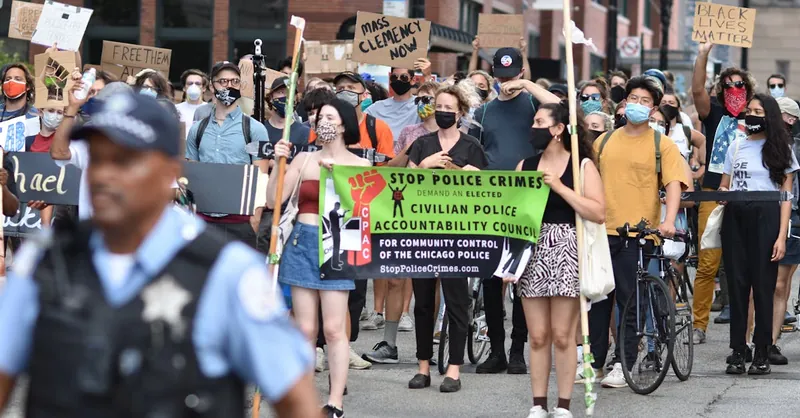
Image courtesy of Charles Criscuolo
Strategies for Challenging Entitlement and Supporting Racial Justice
Effectively combating the harmful impact of Karen behavior requires proactive strategies that empower individuals and communities to recognize, confront, and dismantle entitlement-driven racial injustice. Understanding how entitlement intersects with systemic racism enables more targeted actions that go beyond surface-level responses, fostering long-term social change rooted in equity and accountability.
Recognize and Reflect on Entitlement Bias
- Self-Awareness and Education: Individuals must engage in ongoing learning about privilege, implicit bias, and how entitlement manifests in everyday interactions. This includes critically examining one’s own attitudes and behaviors that may inadvertently support racial inequity.
- Acknowledge the Harm: Recognizing that entitled actions—especially those calling on institutional power—can inflict real emotional, social, and legal damage on marginalized groups is essential. This awareness builds empathy and strengthens commitment to change.
Confront and Challenge Entitlement When It Occurs
- Call Out Behavior Constructively: When witnessing Karen-like entitlement, speak up calmly to highlight the racial implications and the harm caused. Use facts and personal stories to disrupt normalized patterns without escalating conflict.
- Support Targets of Entitlement: Amplify the voices and experiences of people of color who are unjustly targeted. Offering solidarity in public or private settings validates their experiences and counters isolation.
- Leverage Bystander Intervention: Bystanders play a crucial role in diffusing escalation by intervening early. Strategic actions—such as redirecting the conversation or seeking assistance from unbiased authorities—can prevent harm.
Advocate for Structural and Policy Change
- Promote Bias Training and Accountability in Institutions: Support policies that require comprehensive anti-bias education for law enforcement, businesses, and public services to reduce the perpetuation of entitlement-driven discrimination.
- Encourage Community-Led Oversight: Establish or strengthen community oversight boards that monitor complaints and responses involving public entitlement incidents to ensure transparency and fair handling.
- Push for Legal Reforms: Advocate for laws that penalize false or malicious reporting motivated by racial bias, protecting communities from unjust institutional involvement.
Foster Inclusive Community Dialogue and Empowerment
- Create Safe Spaces for Open Conversations: Facilitate forums where individuals can share experiences and learn about entitlement’s role in racial injustice without fear of dismissal or backlash.
- Engage in Allyship and Intersectional Activism: Build coalitions that address entitlement behaviors as part of broader struggles against systemic racism, economic inequality, and social exclusion.
- Promote Media Literacy: Encourage critical consumption of viral content to understand context, avoid stereotype reinforcement, and support narratives that advance justice rather than division.
By implementing these strategies, individuals and communities can actively disrupt entitlement-driven racial harm, transforming moments of conflict into opportunities for education, healing, and systemic reform. This multifaceted approach is indispensable for fostering a culture grounded in respect, equity, and shared humanity.
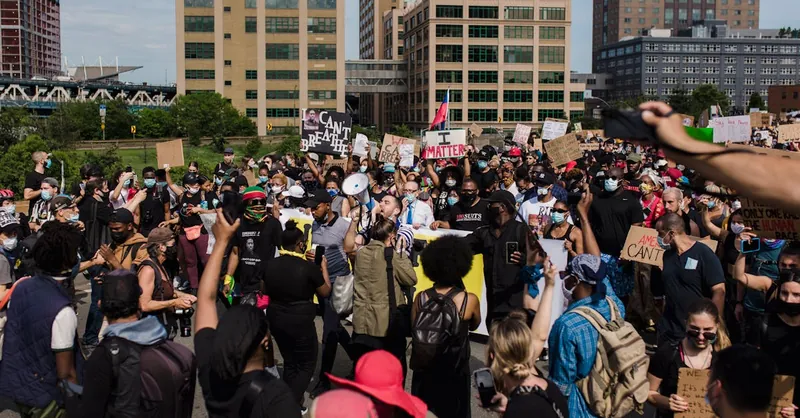
Image courtesy of Life Matters
Broader Cultural Reflections: Entitlement, Privilege, and Accountability
The Karen phenomenon acts as a mirror reflecting deeper societal issues tied to entitlement, racial privilege, and the pervasive lack of accountability that sustains systemic injustice. At its core, Karen behavior reveals how ingrained social hierarchies allow certain individuals—often white, middle-class women—to exercise disproportionate power over others, frequently targeting marginalized communities under the guise of enforcing rules or asserting personal rights. This entitlement is not merely a personal flaw but a symptom of structural privileges that normalize unequal treatment based on race and social status.
Entitlement and Privilege as Cultural Anchors
- Entitlement as a Social Condition: The recurring patterns of Karen behavior underscore how entitlement is culturally embedded, often learned and reinforced through social institutions, family dynamics, and media representations. This cultural entitlement fuels a sense of unquestionable authority to control public spaces and social interactions, especially when intersecting with racial bias.
- Privilege Operating Invisibly: A key factor enabling Karen actions is unacknowledged privilege—the automatic benefit of being perceived as credible, deserving, and authoritative, particularly when confronted with people of color. This invisible advantage often shields Karens from immediate consequences, perpetuating cycles of racial dominance.
- Accountability as a Missing Link: Society frequently fails to hold entitlement culture accountable, allowing Karens’ disruptive actions to continue without meaningful repercussions. This lack of responsibility reinforces a culture where harassment and racial profiling are tacitly accepted or minimized, undermining efforts toward justice and equality.
Reflecting on Societal Responsibility
- The Karen archetype invites us to critically evaluate how collective attitudes and institutional practices tolerate or even encourage entitlement behaviors that escalate racial injustice.
- Addressing entitlement requires more than correcting individual actions; it demands systemic cultural shifts that prioritize active accountability, inclusive empathy, and equitable power distribution.
- By understanding the cultural roots of Karen behavior, we can better advocate for transformative changes in education, workplace norms, and policy frameworks that dismantle entitlement as a socially accepted mode of interaction.
In essence, the Karen phenomenon illuminates the need for a cultural reckoning—one that confronts privilege unapologetically, fosters genuine accountability, and commits to reshaping societal norms that allow entitlement to thrive at the expense of marginalized communities. Recognizing this is foundational to moving beyond surface critiques and catalyzing meaningful progress toward racial justice.
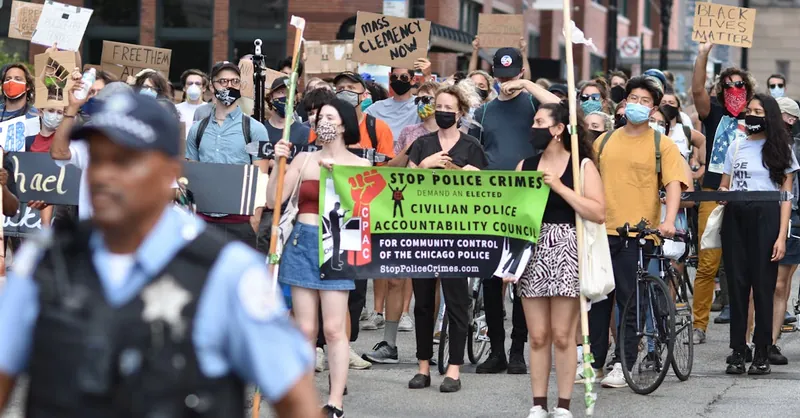
Image courtesy of Charles Criscuolo
Moving Forward: Fostering Empathy and Equity in Everyday Interactions
To effectively counteract the entitlement culture embodied by Karens and its harmful impact on racial injustice, it is essential to move beyond awareness and toward intentional cultivation of empathy, equity, and social responsibility in our daily lives. Developing these qualities helps prevent future harm, dismantles ingrained biases, and promotes healthier, more inclusive communities where respect and fairness are the norm rather than exceptions.
Cultivating Awareness and Empathy
- Practice Active Listening and Self-Reflection: Commit to genuinely hearing the experiences of marginalized individuals without defensiveness or dismissal. Reflect on personal biases and how they influence behavior, recognizing the power dynamics at play in everyday interactions.
- Educate Continuously About Racial and Social Inequities: Engage with diverse perspectives through books, documentaries, workshops, and meaningful conversations. Understanding systemic roots of entitlement and racial injustice deepens empathy and equips individuals to respond thoughtfully rather than reactively.
- Recognize Microaggressions and Address Them Promptly: Small acts of entitlement or bias may seem inconsequential but accumulate to perpetuate social harm. Being vigilant about calling out or correcting these patterns—whether internally or in others—contributes to a more equitable social environment.
Promoting Equitable Behaviors That Prevent Harm
- Amplify Marginalized Voices: Use your platform—whether at work, in social spaces, or online—to center voices historically silenced or invalidated. Supporting these narratives counters entitlement-based silencing and fosters inclusion.
- Respect Boundaries and Contexts: Avoid assumptions about people based on race, class, or gender. Approach interactions with humility and openness to learning rather than control or judgment.
- Hold Yourself and Others Accountable: When entitled behavior arises—whether in oneself or witnessed in others—take responsibility for addressing it constructively. Accountability is key to breaking cycles of harm and rebuilding trust.
By embedding empathy and equity into everyday conduct, individuals create a ripple effect that challenges the entitlement culture driving Karen behavior and entrenched racial injustice. This proactive stance transforms social spaces into arenas of mutual respect and justice, paving the way for sustained social cohesion and systemic change.

Image courtesy of cottonbro studio
